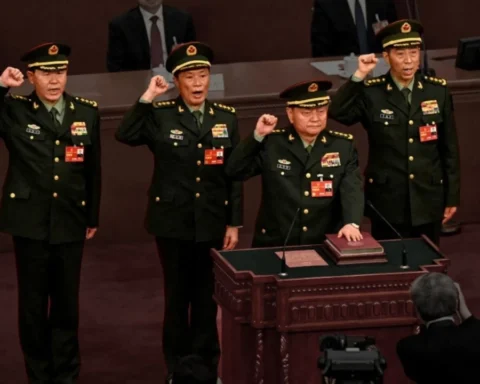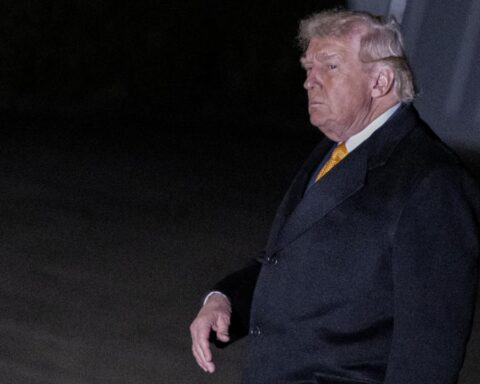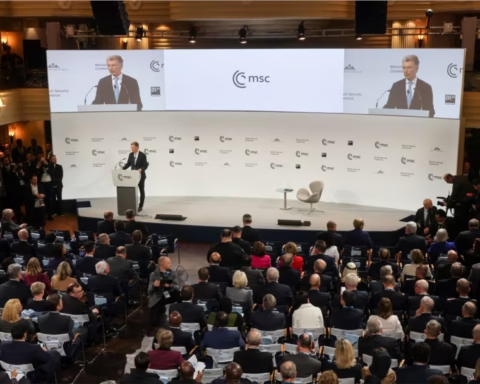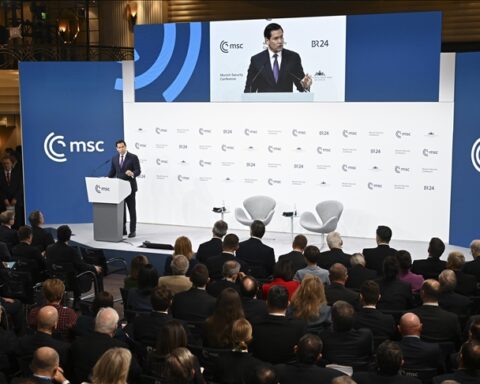Negotiations will only work after the Kremlin views the Ukraine war as a lost cause
In order for any settlement with Russia to have a chance of lasting, Putin must be forced to reach the conclusion that Soviet leader Mikhail Gorbachev had in 1985 regarding the Soviet war in Afghanistan. At the time, the Kremlin realized that the geopolitical, economic, and human costs of the war outweighed Moscow’s interests in continuing the conflict. While negotiations stretched for several years, 1985 marked the turning point at which Moscow began to consider withdrawing from the war.
Today, Ukraine’s partners must remain cognizant of the fact that Moscow has yet to reach a similar “1985 moment.” Vladimir Putin does not accept that the war will not end on his terms. He has provided no convincing indication that he is willing to end his invasion absent a capitulation by Kyiv that cedes four of Ukraine’s provinces and any prospect of attaining genuine security guarantees. Putin’s view that the entire country is a wayward extension of the Russian homeland suggests that even this may not be enough.
The Soviet decision to withdraw its troops from Afghanistan was a sobering result of years of U.S. assistance to the Afghan rebels and a tumultuous political and economic climate in the USSR. In the October 1985 Politburo meeting where Gorbachev first acknowledged the need to end Soviet involvement, he saw the war as a lost cause. “We have our boys there, and it’s not quite clear what they’re doing there. It’s time to leave… we should firmly adopt a course leading to our earliest withdrawal,” Gorbachev told his colleagues. Having Putin reach the same conclusion today is the only viable pathway to a just and enduring peace.
To convince President Putin of this same premise will not be easy. Unlike Gorbachev, he has shown no regard for the damage the war has caused to his country’s standing or the lives lost during the conflict. Putin does not possess any concerns about sovereignty or international law, as Gorbachev did. But with Russia’s economic troubles mounting, Ukraine’s partners should follow the lead of their predecessors in the 1980s by setting ambitious demands and leaving the door open to their revision in favor of Ukraine.
When Gorbachev first expressed a desire to end the conflict, the U.S. stated the complete withdrawal of Soviet forces from Afghanistan would be a prerequisite for any peace deal. Upon sensing the Kremlin’s interest in concluding the war, American diplomats did not stop there. Washington used its substantial leverage to seek greater concessions. In 1988, the U.S. advocated for the right to continue arms provisions to the Afghan rebels. Two years later, Washington demanded that Najibullah, Moscow’s hand-picked leader of Afghanistan’s communist regime, not run in the country’s elections.
Ukraine’s partners must seek a similar trajectory for talks with Moscow today. By firmly calling for Ukraine’s sovereignty to be respected and reversing the aid freeze, the U.S. can create the possibility of a robust settlement that ensures a stable, prosperous Ukraine who will be a valuable partner in the future. Beginning settlement talks by discussing what Ukraine stands to lose is seen by Russia as an invitation to continue its war.
Unfortunately, there are already clear signs that the White House is playing a strong hand weakly. The White House’s pause on aid deliveries and withholding of crucial intelligence signal American frailty, as do the lack of sanctions imposed after Putin declined the proposed ceasefire developed by Washington and Kyiv. President Trump has claimed Russia seeks peace, despite intelligence assessments and a historical record that proves otherwise. Senior U.S. officials have prematurely raised the potential for Russia to rejoin the G8, abandoned labeling Moscow as the aggressor, and given credence to Russia’s false justifications for the conflict. The result of this unearned deference to Moscow will be an emboldened Kremlin that seeks to harm Ukraine further.
A narrow window of time remains to authentically reorient the White House’s foreign policy around its stated goal of “peace through strength.” During the Reagan era, the policy was guided by an unflinching recognition that the free world’s adversaries would only back down if the U.S. supported the security of the liberal world order. Four decades ago, it was the disciplined adherence to President Reagan’s policy of peace through strength that played a key role in weakening Moscow’s resolve in Afghanistan. In 1985, it led to Gorbachev deciding that the war was untenable. Only then did Moscow become increasingly willing to offer concessions advantageous to the U.S. and its partners. Putin must be forced to have his own 1985 moment.
*Artur Kalandarov holds an MA in Russian, East European, and Eurasian Studies from Stanford University. He is a senior associate at The Cohen Group, a strategic business advisory firm based in Washington, DC, where he advises clients on business operations in Eastern Europe. He has previously been published in Defense One, Newsweek, The National Interest, The Defense Post, and the Hill. His views do not necessarily reflect those of his firm.
Source: https://www.realcleardefense.com/articles/2025/04/11/putins_1985_moment_1103369.html






